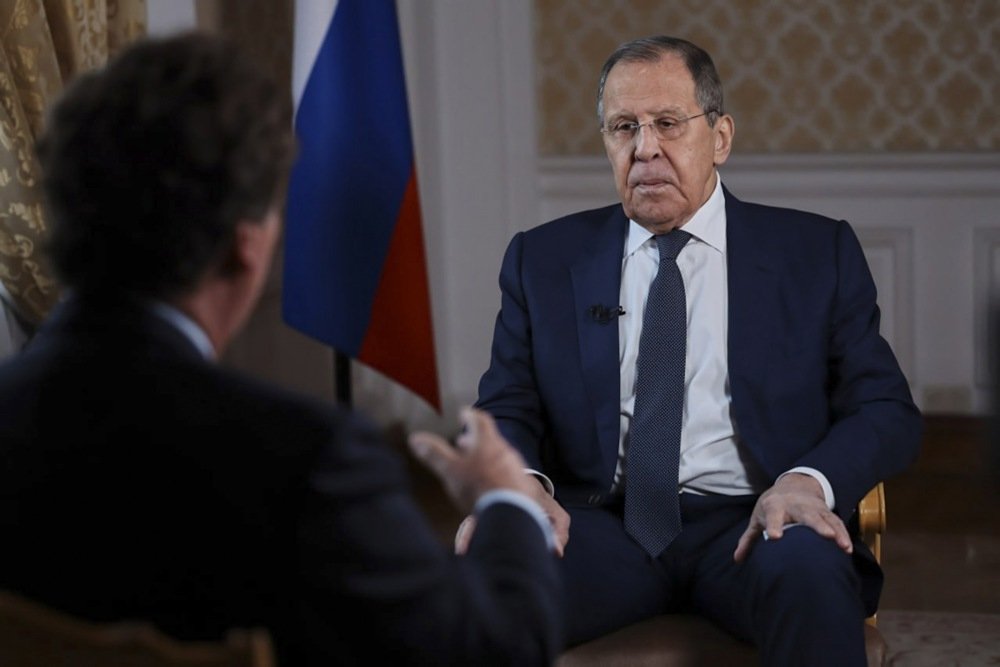
Photo: EPA-EFE/RUSSIAN FOREIGN MINISTRY PRESS SERVICE
Former Fox News host Tucker Carlson returned to Moscow this week for an interview with Vladimir Putin’s veteran foreign minister, Sergey Lavrov, which aired early on Friday, just a day after Lavrov warned that the Cold War between Russia and the West was at risk of becoming “hot”.
Explaining the timing of the interview on X, Carlson, whose bumbling interview with Putin in February caused widespread ridicule, accused the Biden administration of pushing the US and Russia closer to nuclear war than at any time in history, and expressed his alarm at the lack of back channels between Moscow and Washington.
Carlson, who claimed that the United States was now in an undeclared war with Russia, also bemoaned Kyiv’s refusal to grant him an audience with Ukrainian President Volodymyr Zelensky earlier in the year, blaming the US government for blocking his attempts to interview the Ukrainian leader.
Just hours before the interview aired, Lavrov had warned an Organisation for Security and Cooperation in Europe Ministerial Council Meeting in Malta that the Cold War between Russia and the West was at risk of transitioning to “a hot stage” in a speech to ministers that saw several delegations leave the venue in protest.
During the 80-minute interview, Carlson and Lavrov discussed issues including the death of Alexey Navalny, which Lavrov intimated had been caused by the medical treatment he received in Germany in 2020 following his sojourn at Berlin’s Charité Hospital after FSB officers attempted to murder him using a nerve agent.
Lavrov also described US president-elect Donald Trump in glowing terms, calling him “very friendly in discussions”, “a very strong person” and “a person who wants results, who doesn’t like procrastination”.
When asked about Russia’s preconditions for ending the war in Ukraine, Lavrov was adamant that any peace talks would be contingent on an agreement that Ukraine would not join NATO, and that there would be no military bases or military exercises with the participation of foreign troops on Ukrainian soil.
To Carlson’s follow-up question about whether Moscow would demand the end of sanctions on Russia as part of any peace deal, Lavrov was far less equivocal, however. “I would say probably many people in Russia would like to make it a condition. But the more we live under sanctions, the more we understand that it is better to rely on yourself.”
